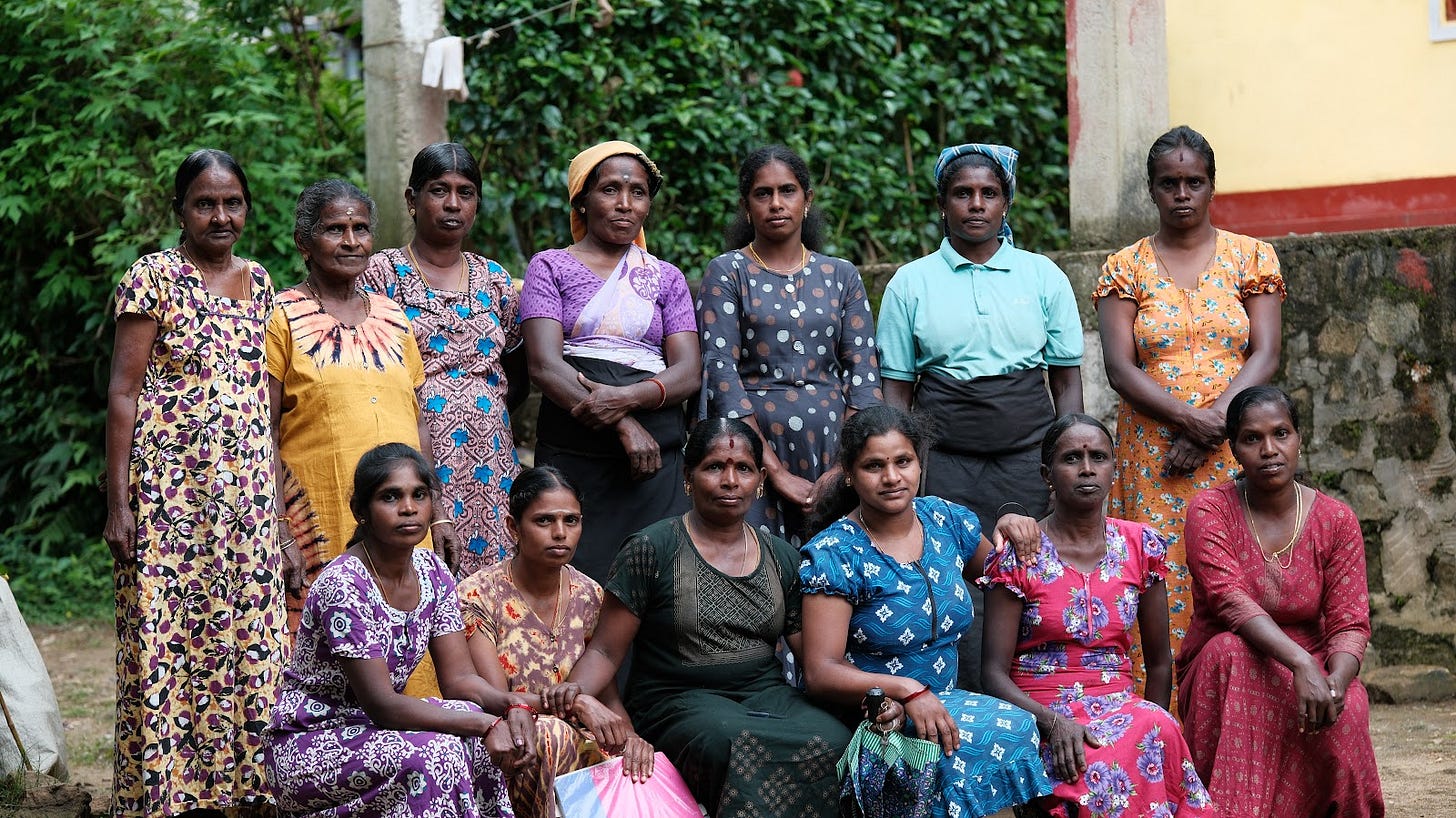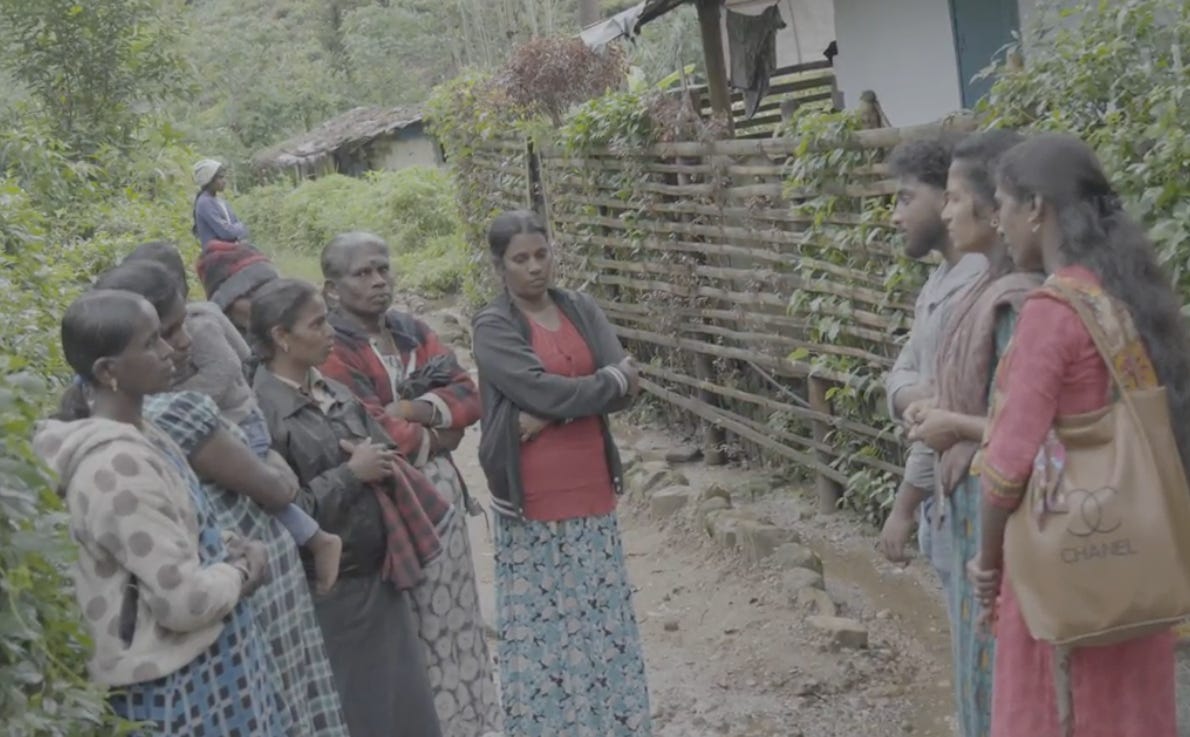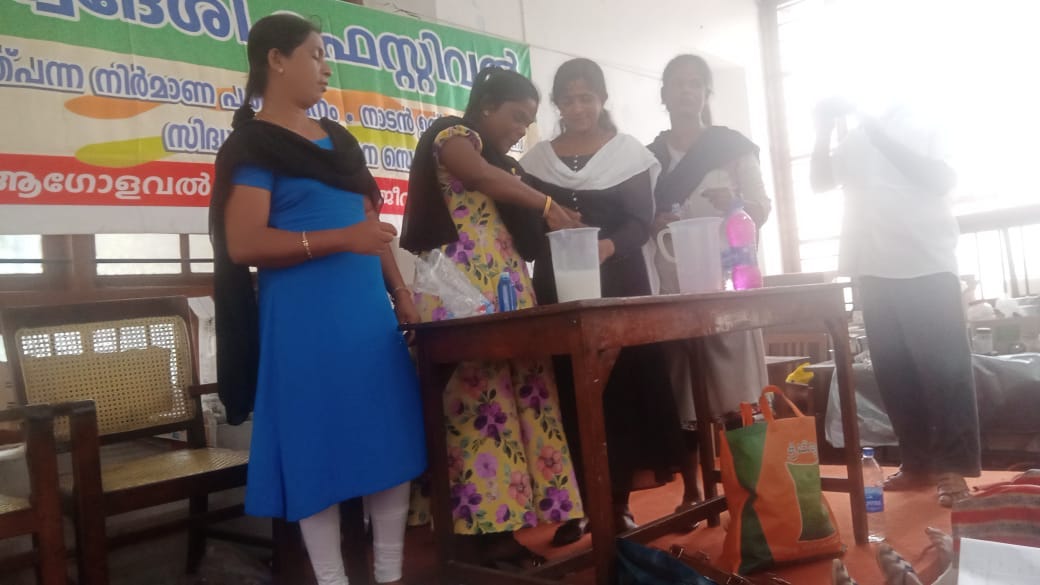A Quiet Revolution: How Self-Help Groups Are Transforming Sri Lankan Communities
Brought to you by Tharunya Sivarupan, Ajetha Koneswaran and Harren Selvakumar
We are deeply grateful to the remarkable individuals and organisations who opened their doors, shared their stories, and allowed us to witness firsthand how communities are transforming themselves from within. Our particular thanks go to Suman Anna, Siyalani Akka, Kirushanthini Akka, and the inspiring members of kullus across Sri Lanka who generously shared their time and insights during our visits and subsequent conversations. Their openness in sharing both their challenges and achievements has been instrumental in deepening our understanding of grassroots development.
This article aims to illuminate how Sri Lankan communities are pioneering innovative approaches to development, moving beyond conventional aid models to create sustainable, community-driven change. Through their stories, we hope to challenge existing perceptions and showcase how rural communities are building resilience and forging new paths forward.
As we travelled across Sri Lanka, seeing every village and town had that same look, it all became a blur - houses made of the same brick, roads of the same soil. But beneath all of this, a quiet revolution was taking place. Along those dusty roads in Mullaitivu and within the humble huts of Maskeliya, empowered women gathered in small groups, discussing progress, sharing ideas and laying the groundwork for stronger, more vibrant communities. What appeared unchanging on the surface masked societies rapidly transforming within themselves.
Across Sri Lanka's tea estates and post-conflict regions, we were fortunate to learn about Self-Help Groups (SHGs), which are transforming community development. Known locally as "kullus" (குழு) in Tamil communities, these groups of 15-20 members meet weekly to pool savings and provide internal loans. These groups enable disabled people, war-affected families and women to save collectively and access loans without relying on predatory lenders.
Two organisations adapt the SHG model to address distinct regional challenges. In Maskeliya's tea estates, the Tea Leaf Trust and Kindernothilfe’s “Children’s Rights Project” have established 44 SHGs, helping tea pickers develop economic opportunities while navigating estate constraints. In war-affected regions, The Economic Nest (TEN) implements 36 SHGs across the country while adding on ethical microfinancing - small, low-interest loans for business development - to help rebuild lives.
During our visits to both regions, we witnessed these groups in action. In Mullaitivu's kullus, women shared stories of rebuilding through collective action, while in the tea estates, historically marginalised workers described creating new possibilities through weekly savings and mutual support.
The shared history and foundations of SHGs within Tamil and Sri Lankan Culture
While these self-help groups may seem like a modern development approach, they build upon deeply rooted traditions of collective action in Sri Lankan society. One example that Tamil readers will be familiar with is 'seetu' - a traditional rotating savings system where community members pool money regularly, with each participant receiving the collected sum in turn. This practice has historically protected families from predatory moneylenders, whose exorbitant interest rates have devastated countless rural households and is still practiced within diaspora communities.
While SHGs didn't stem from these traditional practices, they maintain this spirit of mutual support while adding formal systems for savings, lending, and collective decision-making. They've evolved to address not just economic challenges, but also social and psychological barriers facing women in particular.
Figure 1: A diagram of the development of Self Help Groups within Sri Lanka
The Heart of the Self-Help Group: Weekly Meetings
Every week these women gather to participate in a meeting that has become the heartbeat of community transformation and dictates the path of their development.
A typical weekly meeting begins with a group song or prayer, where the SHG then lays out their agenda for that day and carefully records savings in worn ledgers. A designated bookkeeper documents the savings and loans that have been collected and distributed while members listen attentively, offering suggestions and encouragement. The meeting flows with the members going over the savings collected, loans discussed, community matters, emergency requests and what to do with their collective money are debated - all within a structured yet comfortable framework that clearly empowers each participant.
What makes these meetings remarkable is their systems of documentation and decision-making. Each transaction is recorded twice - in individual savings books and the group's master book - creating transparency and accountability which is shared with the organisation that runs the SHGs. Leadership roles rotate, ensuring every member develops management skills while preventing power concentration.
Through these seemingly simple practices, the foundations for deeper transformation are laid and these women that come from different homes slowly come together through activities and their collective growth.
Empowerment In the Tea Estates:
Figure 2: A Self Help Group in a tea estate within the Maskeliya Region
In Maskeliya's tea estates, SHGs have been operating since 2021 through a carefully structured program developed by Kindernothilfe. These groups navigate unique challenges - their members work seven-day weeks picking tea, and their homes and livelihoods depend on estate employment. The program specifically targets the most marginalised communities, addressing critical issues including child labour, lack of nutritious food, and limited educational access.
The Structure and Support:
Each group of 15-20 women meets weekly, guided by community facilitators who provide training modules on savings, income generation, and rights advocacy. Rather than receiving external equipment or money, members learn sustainable development approaches. These facilitators often conduct meetings late into evenings after tea-picking ends, demonstrating their commitment to accommodating workers' demanding schedules.
Financial Management and Empowerment:
Groups establish their own savings policies, starting with whatever small amounts members can contribute weekly. Loan decisions are made collectively, with members discussing who needs support and setting their own interest rates. This system helps members avoid high-interest external loans while building collective capital.
Figure 3: Speaking with the women of a tea estate about their SHGs during our 2024 trip
Navigating Estate Politics:
A key challenge has been balancing self-employment initiatives with estate work requirements. The program addresses this by helping women develop supplementary income sources that don't conflict with their tea-picking duties. This approach has gained acceptance from estate management, with about 60% of eligible women now participating in SHGs.
Impact and Evolution:
Members work toward both individual and collective goals, consulting with facilitators on project viability. While initially facing skepticism from some men in the community with women having been dragged out of meetings at times, the groups have gained support through dialogue and demonstrated benefits. The focus remains on sustainable improvement in family nutrition, children's education, and household income.
Within the estates, these groups have become crucial support networks in addressing one of the most pressing concerns for women-led households: childcare. A tea picker's day begins at dawn, preparing children for school before heading to the fields until evening. Working until five or six in the evening leaves children unsupervised after school, creating deep anxiety among mothers about their children's safety. Through their self-help groups, women have built a community of mutual trust where members look after one another's children, alleviating the constant worry of whether their children are safe while they work.
“We have been defined by rules, especially as tea estate workers being told when to work, where to go, where not to go and whether we could visit the town or not. We felt that we could never leave this place or have a choice to do what we needed to do.
SHGs showed us that we can go beyond that and that we as women can do ‘it’! We shouldn’t waste five, not even one minute of time within our week and come together as women, regardless of our struggles. We feel that when we are within our kullu that we forget our hardships as we play games and bond as we also get to understand others’ struggles too.” - Unnamed tea estate worker that is part of the SHG that we visited.
While tea estate SHGs run under the model of only using savings between the women to focus on building independence within their suffocating employment structures, we encountered another organisation in Mullaitivu that also operates in other post-conflict regions face an entirely different set of challenges - rebuilding lives and livelihoods from the ground up. The adaptability of the SHG model becomes clear as we move from the tea estates to recovering communities in the North.
In Post-Conflict Regions: Rebuilding Through Microfinance
In Mullaitivu, The Economic Nest has been developing a model specifically designed for post-conflict recovery. They provide a loan of 6 lakhs rupees (600,000) for the kullu to use within itself. The key aspect is that this money belongs to the kullu to use for its own growth and not TEN. Each kullu consists of around fifteen to thirty women from diverse backgrounds. For these women, many of whom lost husbands during the war, the motivation was clear - they were struggling to feed themselves three times a day and wanted to create better futures for their children.
The Structure and Support:
Each kullu meets weekly to discuss business progress, savings, and community needs. TEN's leadership team, including accountants, attend these meetings to provide guidance. The groups who have access to smartphones use WhatsApp to maintain constant communication, sharing business promotions and supporting each other's ventures. This technology integration helps maintain connections between kullus across different regions.
Financial Management and Empowerment:
TEN operates as a mini-cooperative bank, allowing members to save amounts as small as 20 rupees - far below traditional bank minimums. We were able to understand how members such as Siyalani were able to progress from initially taking out 40,000 rupee loans to now larger 150,000 rupee business loans, with all loans being repayable within ten months. The system includes flexibility for emergencies, with TEN externally providing support during crises like heavy rains that impact businesses.
Figure 4: Sitting in on and participating in a meeting with a kullu in Mullaitivu during our 2024 trip
Community Initiatives:
Members also contribute to a collective fund for supporting families during funerals or emergencies, providing money, meals, or basic necessities like rice and flour.
Impact and Evolution:
From initial skepticism, the program has gained significant community trust. As Siyalini from Elilarasi Kullu explains: "Initially I started making coconut oil, selling within the kullu. Now I've moved from that and have expanded to nuts and agriculture, selling to nearby shops because the profit margins are better." The impact extends beyond business growth - members report being able to feed their families three meals a day, a significant change from their previous circumstances.
“Even as a married woman, I want to stand on my own two feet and build something for myself, my husband’s income is his and I wanted to have mine” - Siyalani from Elilarasi Kullu, Mullaitivu
Figure 5: An example of kullu members sharing courses by DreamSpace Navigate within their community
This model demonstrates how SHGs can adapt to different contexts while maintaining their core purpose of empowerment. While tea estate groups focus on building independence within employment constraints, TEN's kullus tackle the challenges of post-conflict recovery through stronger financial support and community rebuilding.
Figure 6: Members of TEN kullus at an expenses paid training centre in India learning how to make soap amongst many other skills that they’ve taken back to teach their kullus
Stories of Enterprise
The impact of what these groups are able to do is best illustrated through their innovations. In one estate, we were shown how members in the tea estates transformed an abandoned building into a sophisticated mushroom growing facility - installing specialised shelving, sealing windows for environmental control, and maintaining strict sterility procedures. They hope that they will be able to sell the mushrooms once they have grown.
Figure 7: The beginnings of the conversion of a building during our visit to a tea estate, as the SHG sealed the derelict building before fitting it with the equipment to grow mushrooms (kaalan) to sell
Figure 8: A recent picture of a mushroom that has come from the same building that we visited 6 months ago. sent to us by Kirushanthini who coordinates the SHGs within these estates.
Community Impact
Beyond business development, these groups catalyse broader social change through targeted community initiatives. The Elilarasi kullu's bicycle scheme for O-level and A-level students has improved educational access for six children over two years. Similarly, in tea estates, SHG members have used their collective savings to create safer walking paths and provide educational resources like books and sports equipment for children. These locally-funded initiatives demonstrate how SHGs enable communities to address their own development needs.
Current Trends
Sri Lanka’s ever-evolving landscape economically, politically and environmentally present new challenges to these communities. The economic instability, due to high inflation and foreign debt, has led to shortages of basic goods. Although the impact of this is felt throughout the country, it disproportionately affects those in rural communities, women and children.
SHGs therefore, play an increasingly important role in the country providing a sense of hope through economic empowerment with micro-financing; addressing food security through collective farming and community gardening; strengthening social safety nets with mutual aid emergency funds; women’s empowerment and leadership in crisis management through skill development programmes, entrepreneurship and financial independence.
Understandably, the civil war has left lasting psychological impacts. In these rural communities where there is a lack of accessibility to basic services, mental health support is limited. The community and mutual aid aspect of SHGs also provides a space to address mental health, substance abuse and general support. Groups such as Alcoholics Anonymous, Enable Lanka Foundation and BasicNeeds Sri Lanka are non-governmental organisations (NGOs) which use the community model to support individuals cope with stigma and isolation while building resilience.










